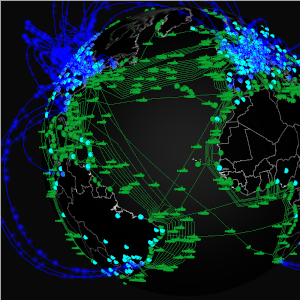Internet Maps, Stats and Intel
Geek out with Internet maps and Statistics that reveal the true power of this fully operational death star global network.
Internet Exchange Points (IXP)
Routing points that make the Internet operational
An Internet Exchange Point (IXP) consists of physical routing hardware that connects Internet traffic from ISP’s and Content Delivery Networks to route to other Autonomous Systems (AS).
The map above depicts the largest IXP’s with scale depicting the size of the traffic that is being passed by the network.
A number of Internet exchange points, particularly those in the United States do not publish figures.
Autonomous Systems (AS)
Do you know what an ASN is?
Autonomous Systems (AS) are collections of IP address prefixes that are managed by a particular organization. An AS can be identified by its ASN or Autonomous System Number. Having even a basic understanding of how to identify an AS can help in tracking down issues with network connections and assist in aspects of cyber security.
Globally Internet Usage has reached only 53% population, while in the developed world Internet usage is currently around 86% of the population.
Source: ITU 2019 (https://en.wikipedia.org/wiki/Global_Internet_usage)
Internet Usage Statistics
Global Internet user growth has been affected dramatically by the increase in Internet connected Mobile devices. In fact the majority of Internet users now use a mobile phone rather than a computer.
| Top Countries by Internet Users | |
|---|---|
| 1 | China (750 Million) |
| 2 | India (390 Million) |
| 3 | USA (150 Million) |
| 4 | Brazil (130 Million) |
| 5 | Japan (120 Million) |
Internet Latency
Estimating response times from geographic hops is a primary way to identify routers that are having network issues. Using the reverse DNS of the router IP along with a typical response time allows us to identify congested hops or other problems. Did you know that while the speed of light is 300'000km/sec the refractive index of glass means the data travels through fibre at ~200'000km/sec or 200km per millisecond (source Traceroute 2014)
External Maps & Statistics
Who doesn't love a good map?
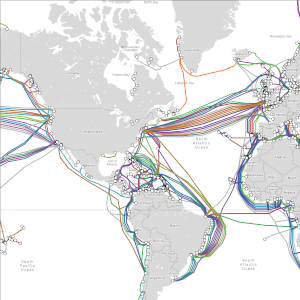
Internet Submarine Cable Map
First published on the site Gregs Cable Map, this is a detailed map of global submarine cables.
Recently Updated
List of Internet Exchanges (IXP) (PCH Database)
A comprehensive directory of IXP's with location and bandwidth data.
Recently Updated
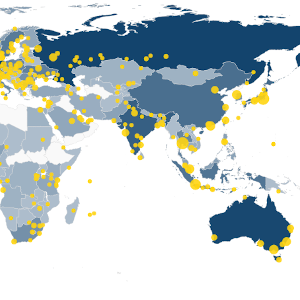
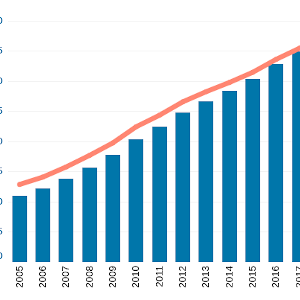
ITU Internet Users
ITU estimates that at the end of 2019, a bit more that 51 per cent of the global population, or 4 billion people, are using the Internet.
Updated 2019
Internet Connection Growth
Detailed report on Internet Connection Growth from Equinix a global Internet Services company based in the United States.
Projection to 2023
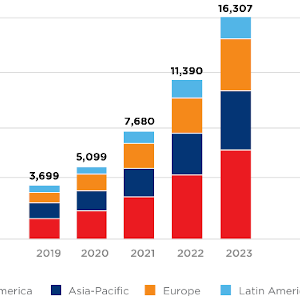
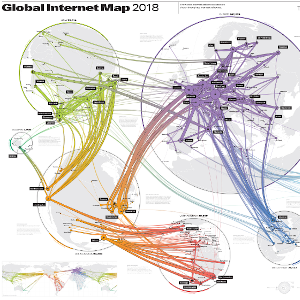
Global Map of Internet Bandwidth
A global map showing the Internet bandwidth across metro, regional and global locations. Produced by Telegeography.
Updated 2018
The Internet Map
A visualization of the web properties that make up the Internet. Represented with scale of the size of the site.
Data dated 2011

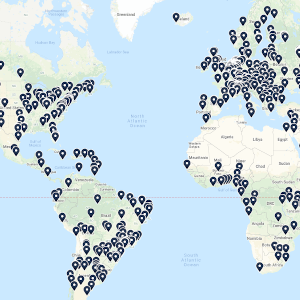
Internet Exchange Map
A Google Map showing IXP's across the world from Telegeography.
Updated 2018
The Carna Botnet Map
The Carna botnet was a botnet of 420,000 devices created by an anonymous hacker.
Scanning from 2012
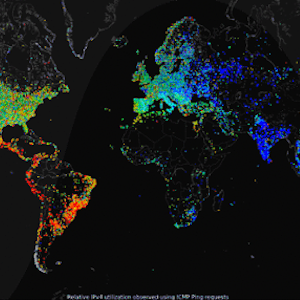
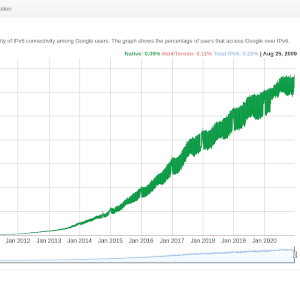
IPv6 as seen by Google
Google is now seeing just over 33% of users on native IPv6 connections.
Data is current
3D Animated Map of Submarine Cables and POP's
An ugly map with a great deal of detail from Hurricane Electric.
Data is current
